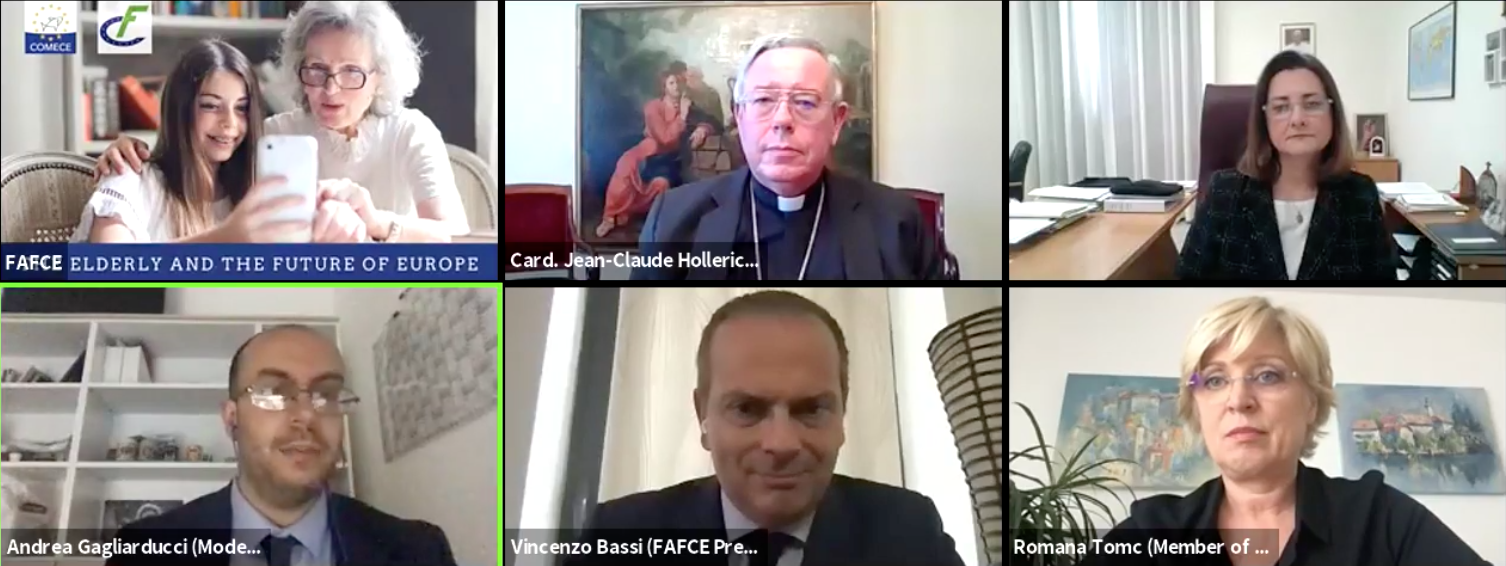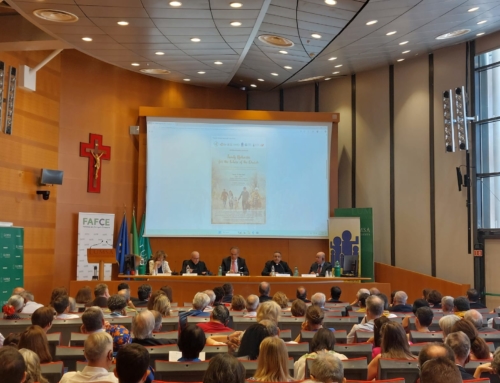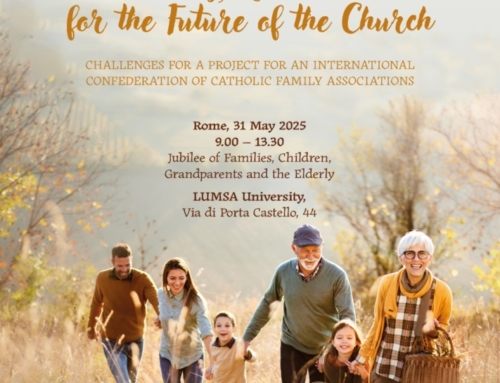Brussels, 2nd of March 2021
On Monday, March 1st, 2021, FAFCE and the Commission of the Bishops’ Conferences of the European Union (COMECE) jointly hosted a conference to flesh out the implications of their recent document, entitled The Elderly and the Future of Europe. Panelists spoke to how the pandemic exposed fissures between generations that European society can overcome only through a commitment to solidarity. The pursuit of such solidarity begins with recognition of the importance of intergenerational relationships at the familial and community levels.
FAFCE’s President, Vincenzo Bassi, opened the conference by shifting the view of a person as a sum of his or her productive value, to the view of a person as a multiplier, wherein a person’s experience and wellbeing is multiplied across his or her network in the family and in society. He condemned the present cultural fixation on productivity as the measure of personal worth, which leaves no room for those with diminished or marginal productivity, and thus leads to the rise of a “throw-away culture”. On the contrary, the family can be the cure for both the loneliness of elderly persons and the looming public debt crisis that the current demographic growth rate cannot sustain. Europe does not need more consumerism, but more children.
Cardinal Jean-Claude Hollerich, Archbishop of Luxembourg, built on this idea in his closing remarks, reminding conference attendees that, in order to demonstrate a commitment to European values in the question of the elderly, Europeans must ensure that their values can survive. They can do so by trading the self-gratification of consumerism for the self-dedication of family life. In calling for “real conversion to family”, Cardinal Hollerich focused on the family as a place of exchange made possible by intergenerational solidarity. He recalled in that sense the work done together by FAFCE and COMECE for that goal.
In her intervention, Gabriella Gambino, Under-Secretary of the Vatican Dicastery for the Laity, the Family, and Life, shone a light on the elderly’s unique capacity to allocate intangible resources, such as wisdom and support, between generations. The state cannot replace the family as the engine of inclusion, demographic growth, and intergenerational solidarity. For this reason, the state must provide sustained support for the family, which Ms Gambino goes so far as to call “the precondition for every other possibility of development for human persons in their social dimension.” She stressed the danger of failing to ensure intergenerational solidarity in the strongest terms, warning that “without it, there cannot be real human, economic, and social development.”
Re-watch the Webinar:







